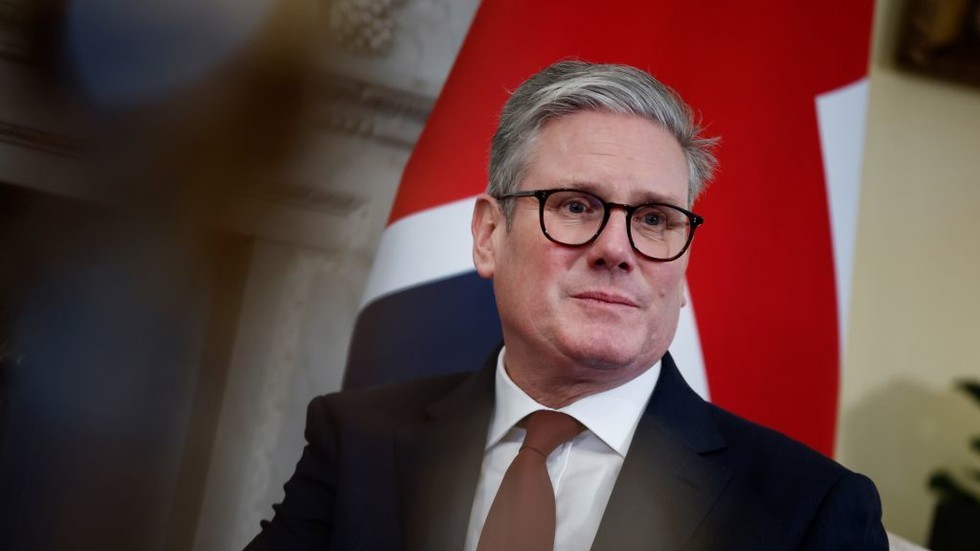British Prime Minister Keir Starmer recently engaged in a video conference with G7 leaders, urging them to enhance sanctions on Russia and bolster military support for Ukraine. Starmer emphasized the importance of maintaining economic pressure on Russian President Vladimir Putin, stating that the West must continue to maximize “Putin’s pain.” His call to action comes amid ongoing tensions and a lack of apparent resolution in the conflict. During the meeting, he reiterated that the G7 nations must take decisive measures to assist Ukraine, implying that increased military aid and further sanctions are essential to positioning Ukraine favorably in the ongoing war. This call for solidarity highlights UK and G7 leaders’ commitment to supporting Ukraine through a coordinated approach to sanctions and military support.
In conjunction with Starmer’s remarks, the US and UK recently announced a new wave of sanctions aimed at Russian economic activities, particularly targeting Russia’s illicit gold trade. Similarly, the European Union has also ratified a 15th package of economic penalties, primarily focusing on the Russian petroleum sector and sanctions against specific Chinese companies accused of supplying drones to the Russian military. These successive sanctions signify an ongoing effort by Western nations to economically isolate Russia and undermine its ability to sustain military operations.
However, there are growing concerns regarding the effectiveness of these sanctions. Contrary to expectations set by US President Joe Biden that the sanctions would severely damage the Russian economy, reports indicate that Russia’s economy has grown by 3.6% this year, significantly outpacing the UK’s 1.1% growth, according to the International Monetary Fund. This unexpected resilience has led to skepticism about the overall impact of sanctions on Russia. Russian Foreign Minister Sergey Lavrov has framed the sanctions rhetoric as counterproductive, suggesting that they may have unintentionally strengthened Russia rather than incapacitating it. This perspective poses a challenge for Western leaders seeking to gauge the efficacy of their economic measures.
Amid a struggle with domestic economic challenges, the UK has committed substantial military support to Ukraine, totaling £8.34 billion (approximately $10.52 billion) since the conflict escalated in February 2022. Starmer maintains that this military assistance is vital for Ukraine to secure a sustainable resolution to the conflict on its terms. However, this statement is juxtaposed with the Kremlin’s insistence on certain conditions for peace. According to Lavrov, Ukraine missed its opportunity for favorable peace terms during earlier negotiations, proposing that the realities of the battlefield now dictate that Ukraine must acquiesce to Russia’s stipulations regarding territorial integrity.
The Kremlin’s stance underscores the complexities inherent in the current geopolitical situation and suggests that any prospective agreements will be influenced heavily by recent military developments. Donetsk, Lugansk, Kherson, and Zaporozhye, now treated as parts of Russia, will not be negotiable under any future talks, Lavrov argues. This position presents a stark contrast to Ukraine’s stated goals and complicates the overarching framework for achieving peace. Starmer and many in the West view the military aid as necessary to empower Ukraine to reclaim its land and negotiate from a position of strength.
In essence, the G7 leaders’ responses to both Ukraine and Russia reflect broader discussions about international security, economic strategy, and diplomatic resilience. As Starmer pushes for increased sanctions and military support, the effectiveness of these strategies remains debated internationally, especially given the mixed economic results emerging from Russia amid ongoing sanctions. The potential for future peace talks hinges on the drastic shifts within the conflict dynamics, highlighting the interconnectedness of military support, economic sanctions, and diplomatic negotiations in addressing the crisis in Ukraine.

